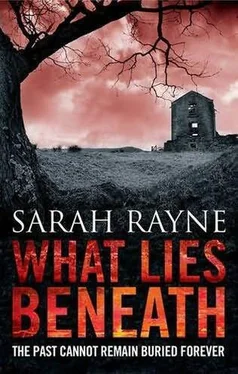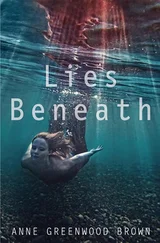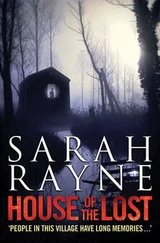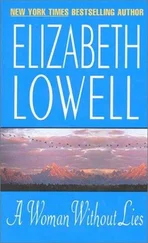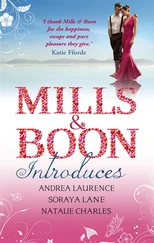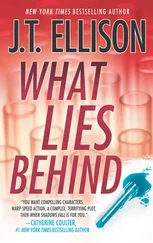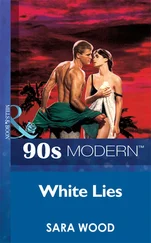The crushing pain was already wrenching my mind, but when the pain stopped, the deformity was in place. That was when I felt lighter, stronger, filled up with power as if it had been poured into me from a jug. I could conquer the world, do anything I wanted. Stevenson’s Mr Hyde, prowling the dim cobbled streets, had understood about that soaring exultancy, that deep strong wish to inflict violence, and I understood it too. During those darknesses, the longing to kill Crispian was almost overwhelming. But if I gave in to it, I knew I would not be sufficiently careful. I would not plan or bother to cover my tracks. I would simply slay him on the crest of that dark arrogance and glory in his death with no thought for the consequences. It could not be risked. Murdering Crispian could only be done when I was sane and in control.
So I spun the lie about feeling travel-sick and scuttled away to my cabin in the wake of a ship’s officer. He moved quickly, presumably because he was afraid I might vomit on the clean floor. I kept a hand clapped over my mouth to foster this impression; you get used to practising these small deceptions; they’re not praiseworthy, but they’re necessary.
Once in the cabin I thanked whatever gods might be appropriate that we were not to share sleeping quarters. My quarters for the voyage consisted of a narrow room with a built-in bed and cupboard, a washstand and chair. It was airless and cramped already, and by the time we reached the Italian coast it would probably have turned into an oven, but I would have suffered a worse fate than baking below decks for the benison of that privacy. There was no lock on the door but the small chair could be wedged under the handle. I was shaking so badly by that time I could scarcely hold the chair, but eventually I got it in place, then threw myself on the bed and lay there, ready to do battle with the pain. It would pass in time; all I had to do was remain strong. Here it came – the crunching-bone agony, then the scalding feeling of power. There was a small oblong mirror fastened to the wall over the washstand, but I did not dare look into it.
The pain passed after two hours – a mercifully short time – and light began to trickle back into my mind. I splashed cold water onto my face from the ewer left on the marble washstand. There were towels and soap as well. I’ll say many things against Crispian, but I have to admit he was never mean. The ship was small but the cabin was properly appointed and it looked as if passengers’ comfort would be well catered for.
Restored and refreshed, I removed the chair from the door and went out. There had been mention of a passengers’ lounge for meals, and the prospect of food and drink and the company of normal human beings was comforting.
1912
Crispian thought that considering the macabre nature of this journey, it was progressing reasonably well.
He hoped it would be uneventful, but they were only a few miles out into the Mediterranean when a storm blew up and most of the passengers were seasick. Crispian and Jamie managed to stagger up on deck, which was said to be the best place. Crispian did indeed feel better in the open, even with the rain lashing down, but Jamie hung over the side, retching and groaning, so Crispian left him to it, and made his way back downstairs to look in on his father.
Julius’s cabin was hot and gloomy, and there was a slightly sour smell. There was a basin and ewer in the washstand cupboard, and Crispian guessed his father had been sick, like most of the passengers.
Julius was half-lying on the narrow bed, his shoulders hunched, his face to the wall, but he turned when Crispian came in.
‘How are you feeling?’ said Crispian.
Julius peered at him uncertainly. ‘Crispian?’
His eyes were unfocused and his voice was blurred. He’s not sure who I am, thought Crispian with a twist of apprehension, but, speaking in as normal a tone as possible, he said, ‘I came to see if you were all right. Have you been seasick? Most people were.’
Julius frowned, then appeared to recollect his surroundings. ‘Sick,’ he said, as if trying out the word. ‘Yes, I was sick.’ He sat up a little straighter. ‘Wretched storm,’ he said. ‘Still, you can’t take to the sea without expecting a storm or two.’
This was so rational a remark, and Julius looked so much like his old self, Crispian relaxed.
‘Ring for the steward if you need anything,’ he said. ‘I’ll see you a little later on. We’ll have supper here together if you feel up to eating.’
Julius nodded, then said abruptly, ‘The Aegean Sea, that’s where we’re going, isn’t it?’
‘Yes.’ Crispian had explained this on the train from Waterloo. He had brought an atlas and traced the journey out for his father.
‘As long as it doesn’t turn out to be the Styx,’ said Julius, a glint in his eyes. Crispian’s heart gave a thump of apprehension. ‘Or even,’ said Julius, regarding Crispian with his head on one side, ‘the River of Jordan?’ His eyes were no longer fogged, they were sharp and clear, and for a moment he was again the strong, powerful man of Crispian’s childhood: the man who had headed Cadences Bank for so many years and wielded authority over so many people. ‘Did you think I didn’t know what was going on?’ he said. ‘Let’s have honesty between us at least, Crispian.’
‘We’re being perfectly honest,’ said Crispian. ‘Jamie and I want to study foreign banking procedures. You’ve been working too hard and this is a recuperative trip for your health. Dr Martlet suggested it. I explained all that to you.’
‘You always were a damn good liar,’ said Julius, turning away.
Gil’s cabin was on the same corridor, a little further along. Crispian hesitated, then knocked lightly on the door. His heart was beating a little too fast, which would be the result of that brief disconcerting interview with his father or even the seasickness earlier. He was just thinking Gil was not going to answer – or perhaps was asleep – when Gil called out to come in.
He was lying on his bunk, a book propped up, and he was wearing a silk dressing gown in dark red. His hair was disordered and the robe was slightly open at the chest. There was a faint scent of pine on the air, as if he might just have washed.
‘I’m only looking in to see how you’re feeling,’ said Crispian.
‘Never better,’ said Gil, although he was pale and there was a faint beading of moisture on his brow. ‘I’ve asked the steward to bring some chilled champagne, as a matter of fact. Finest thing in the world for seasickness, chilled champagne. It’ll be here in a minute.’ He considered Crispian. ‘You could stay and drink it with me,’ he said softly, and although he did not quite move over on the narrow bed as if to make room for Crispian, he somehow gave the impression of doing so.
‘Champagne gives me indigestion,’ said Crispian. But as he went out he was aware of Gil smiling the narrow-eyed smile he remembered from the train.
When they reached Nice, Gil proposed they dine at one of the restaurants on the famous Promenade des Anglais.
‘At my father’s expense, I suppose,’ said Crispian caustically.
‘Yes, of course. I certainly can’t afford it, dear boy,’ said Gil. ‘But I do think we should sample some of the local delicacies while we’re here.’
Crispian, who was writing a letter home, glanced up at him suspiciously. ‘What had you in mind?’
‘Bouillabaisse and salade niçoise,’ said Gil, meeting Crispian’s eyes guilelessly. ‘Both famous dishes of this area.’
Jamie, however, requested to be omitted from the party. One had, of course, to eat, he said, but there were a number of famous works of art to be seen, and he would very much like to study them. ‘I thought you two wouldn’t be very interested in the museum,’ he said, ‘and I don’t really want to explore the nightlife, so I thought I’d hire the services of one of the guides for the afternoon. The captain says they’re always around the quayside, and providing one’s careful they’re generally trustworthy. There’s an art gallery I want to see. I’ll go out there with a guide on my own and have supper here with the captain and your father when I return.’
Читать дальше
